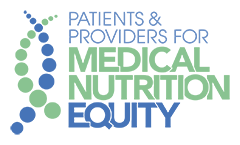There are a lot of difficulties that come with having a metabolic disorder. Our society revolves around food, and daily accommodations/restrictions must be figured out for family meals, social gatherings, school functions, etc. My daughter is hungry often because of her low protein tolerance.
For years, I had to weigh, measure, record, and track everything Brielle ate. I have to make different meals and order expensive specialty foods. But if you had to ask me what the hardest part as her caregiver has been, it’s not any of the above. It’s been the times we have changed insurance and we have to obtain coverage. Insurance companies often lack understanding of what their policy terminology means regarding medical nutrition. I have had to explain the terminology every time, and involve Nevada law with one company. That involved a 30 day battle that almost went to arbitration & the Insurance commissioner. The fear over not being approved, combined with the stress and frustration in the process is overwhelming. Insurance coverage should not be the most difficult part of these diseases! And when I learned that adults are often not covered at all, I was astonished. These are critical medications, and need to be accessible by all patients with metabolic disorders, etc.
My daughter is incredible. She faces her disorder with courage, strength, self control, and confidence. She has worked hard to be diet compliant her whole life, and I would hate to see those efforts ever derail because she can’t access her needed medications.
